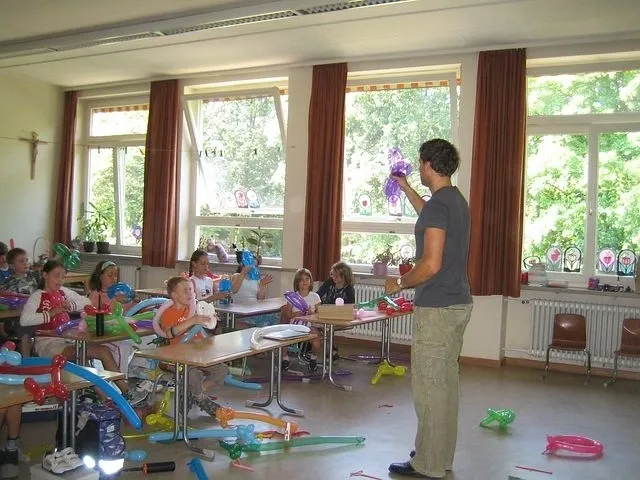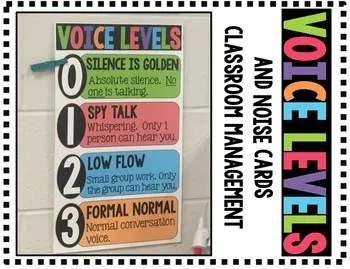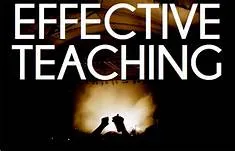During my 35 years of interactions with thousands of students and parents, I have observed that a state of uncertainty about career is prevailing across the sections of people. I have met very few people with clear vision about their purpose of life.
Recently, when I started iTTi India (International TEFL TESOL Training Institute), people are coming to me and requesting admissions. They think, as soon as they get this certificate, they will find a job abroad with very lucrative salary and other facilities. Yes, they are not wrong about the possible outcome of this training program; but, let me tell you a secret, not everyone of us is going to be successful as an English teacher abroad. In addition to having a TEFL TESOL certificate, one must possess certain qualities to make him/her shine in this field.
So, before you think, you can go abroad to teach English, read this article and decide whether you are ready for it or not. It is a big decision to leave India and teach abroad for a year (or more). It is life changing as well, an experience you will never forget. There could be many reasons for you to decide to go. You may have just received your degree and have the urge to travel, or you may be thinking of what to do before your master’s classes start next year. You may also want just a change.
Whatever may be the case, it’s a big choice and this article will help you making right decision. Considering that you have done a lot of homework before getting admission in TEFL TESOL certificate programme, let’s start with asking yourself a few simple questions: –
1. Is Teaching your Passion?
2. Do you love the company of toddlers?
3. Do you love reading ..reading and reading?
4. Are you ready to accept new challenges?
5. Is Education being the field of your interest?
6. Do you lose your temper very often?
7. Are you determined to earn and save money?
8. Are you well qualified?
9. Do you love exploring new places and cultures?
You are eligible and capable to teach English abroad, if most of your answers to the above questions are in YES. Why so? Let us elaborate –
1. Is Teaching your Passion?
Many teachers would verify that they entered the field of teaching because they love it. Not only do they love teaching others, but the subject material they teach thrills them. Stories abound of would-be teachers switching out of college majors to pursue the career they love. In other cases, teachers work with their subject material – whether it be English, Math, Science, or whatever – in arenas beyond just their classroom. They gravitate towards those venues. They feel complete when they work with and talk about what they love.
And then they meet students who are, shall we say, not quite as enthusiastic. Some teachers can be caught up in a moment of pure passion when talking about a topic without realizing their audience doesn’t exactly sympathize with their sentiment.
The truth is that teachers regularly love “this stuff,” whatever it is they may be teaching. The question is, “How can passionate teachers get their students to be passionate, too?” After all, unless students have some degree of interest in the topic, they are not going to be motivated to excel.
2. Do you love the company of toddlers?
As a new teacher, the chances are there for you to be teaching toddlers. The reason being is that teaching adults is less in demand compared to kids in the ESL market. Also, jobs teaching adults are often split-shift and they usually require a decent understanding of grammar and some teaching experience, which is something not all first-year teachers have.
So, ask yourself, do you think kids are fun? Do they make you laugh? Can you get along with kids all day? You’ll be with them for most of the day.
Armando Pannacci, an ESL teacher with over ten years of experience teaching English in Thailand, Korea and Canada, says- “I will point out that “kids are kids”, meaning that—from my experience—they are very similar everywhere in the world.”
He further advises- So, if you’re unsure, it’s best to get some experience volunteering with kids to test the waters. If you do like kids, then this is a good sign you’ll enjoy the job.
3. Do you love reading … reading and reading?
When was the last time you read a book, or a substantial magazine article? Do your daily reading habits center around tweets, Facebook updates, or the directions on your instant oatmeal packet?
If you’re one of countless people who don’t make a habit of reading regularly, you might not be able to become a good teacher.
Reading has a significant number of benefits, like- Mental Stimulation, Stress Reduction, Knowledge, Vocabulary Expansion, Memory Improvement, Stronger Analytical Thinking Skills, Improved Focus and Concentration, Better Writing Skills, Tranquility, Free Entertainment and many more can be listed. So, to become a successful teacher, step away from your computer for a little while, crack open a book, and replenish your soul for a little while.
4. Are you ready to accept new challenges?
If you do want to teach overseas, there are many changes and challenges you’ll face. Teaching overseas isn’t some kind of vacation—which many prospective teachers may assume after backpacking Asia for example. The fact is that even though you speak English, teaching it is another ball game altogether. As an English teacher overseas, you can get thrown into classes and, although most schools don’t have the highest expectations for first-year teachers, you need a lesson plan and you need to prepare. It can be a tough year to endure if you let the classes get out of control. Classroom management can be stressful at times and it will test your nerves. On the other hand, many teachers enjoy the challenge and fall in love with the teaching profession by facing these hurdles.
5. Is Education being the field of your interest?
If you’re considering teaching as your professions and you’d like to test your comfort zone as a teacher, then teaching abroad can be a good place to do so. And, even if you are not considering teaching as a profession, engaging in the students’ learning will help you as a teacher throughout the year. You will be more focused and goal oriented. Your level of engagement will increase, and you will be less bored in class. Therefore, if you are interested in education and helping students improve, it will put you in a better situation abroad. If you are there for making money only, it could turn into a bit of a drag. So, ask yourself, how interested in education are you and how committed are you in improving students’ speaking ability?
6. Do you lose your temper very often?
While going abroad for teaching, you need to face language barriers, bureaucracy, cultural differences, etc., patience is a must. Not only in the classroom but outside, everything is new and exciting—but you still need to get yourself and your classes organized. It takes patience. Students are also not always going to understand or listen to every word you say. This will take patience too. Students won’t be able to pronounce the “nd” sound, even after ten times of repeating it to them… again, patience is needed!
In all aspects of teaching overseas, you will need to exercise a degree of patience, otherwise you may burn out half-way into your teaching year. It’s a fun job, so be patient and have fun! If you are naturally highly strung, teaching abroad may teach you a bit of patience.
7. Are you determined to earn and save money?
Because your rent is often paid for (depending on the contract), and due to a lower cost of living in many countries, it isn’t hard to save a big chunk of your income in higher-paying countries like Japan, Korea or Saudi. That could possibly lead to savings of $10,000 or more per contract if you live simply—of course depending on lifestyle. Even in countries like- Thailand, Vietnam, Indonesia, Sri Lanka, Maldives, Georgia, China, Taiwan, Mongolia, Brunei etc,; you can save a handsome amount, as most of the schools provide you with accommodation and MOD (Meals on Duty). It also doesn’t hurt to take on a few private students of your own. The money isn’t terrible, and the potential savings are decent.
8. Are you well qualified?
It all depends on the country or school, but, although not always necessary, most of the schools these days do require a university degree (in addition to TEFL TESOL) to teach. The reason for this is that in order to process a working visa for you, the school must submit your degree to Immigration. Because there have been many issues with fake degrees, some countries do require you to certify your degree at an embassy before applying. These are all newer regulations that did not exist years ago. Having said that, it is really not a deal breaker. If you wish to teach short-term, say for half a year, it may not be necessary because many countries let you visit for up to six months. In this case, many schools will hire you, but when your time is up, you may need to return home or extend your visitor visa. So, although a degree makes things easier for you in terms of work permits, there are still plenty of jobs out there that do not require a degree.
9. Do you love exploring new places and cultures?
Teaching English abroad can be a great way to travel the world and earn money doing so. For most of the aspirants, this is one of the biggest perks of the job—freedom to move around. Oftentimes TEFL contracts are based in Asia, where demand is strong and travel opportunities are endless since many of the destinations in Asia are close to each other and relatively inexpensive. On the other hand, if you like the comforts of your own home and are prone to getting homesick, then it may be a little harder to adapt. Not everyone enjoys the adventure of being in the middle of a country they know nothing about, but some people love it—and depending on the contract you sign up for, there is usually ample holiday time to satisfy your travel thirst while teaching.








